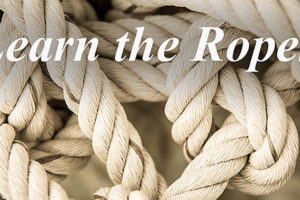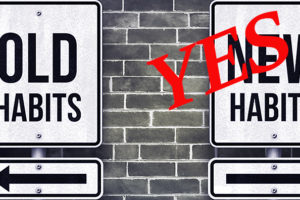Among Artists “Not Feeling Good Enough” Is Common
Through Ancestry.com I learned a family secret. My great grandfather impregnated a young girl and before she bore him a son, he married her. He divorced her five years later. Their little boy was my grandfather. He lived alone with his mother and rarely saw his dad. Unable to stay at home, as she was the sole provider, his mother sent him to a boarding school.
Ancestry doesn’t say how terribly lonely he was or how angry he was at the absence of his father. Neither my mother or dad ever spoke about my great grandmother. It was a well-kept family secret. There is no listing of her or her name in our family records.
When my grandfather was 19, he and my grandmother eloped. He brought all the childhood bitterness in his heart to the marriage. When my father was born, his anger spilled onto his own son.
I will never know why dad didn’t choose the better path, but he carried that family habit of verbal abuse and pommeled my little brother with it. I tried to protect him from the caustic words that flew like darts, but often I wasn’t there. Only when my brother and I were adults did he tell me about the constant cruel words. If it had happened today, our dad would have been arrested for child abuse. The ramifications continue.
HOW DID THIS AFFECT MY ART?
Though I grew up usually escaping my father’s worst bouts of anger, I absorbed that “not good enough” paradigm or framework of thinking. It spilled into my desire to create art. Though dad was an excellent artist with an “I’m not good enough” mentality, he never could bring himself to say anything positive about my art. Even when I graduated university with honors at 42, with a minor in art, he couldn’t congratulate me. There were no smiles or fatherly words of praise. This is so common in our society. We are enmeshed in dysfunction, but the good news is that we can escape.
It is actually possible to break the patterns. I see it in my brother, who is the kindest father and grandfather a child would ever hope to have. My own two children were also raised with all the principles of love, encouragement and affirmations. Mine is the story of millions. Maybe it’s your story too.
SO HOW DO YOU CHANGE THE PARADIGM?
Feeling unworthy is a deeply embedded habit. It was taught to us by the people whom we trusted. The people who cared for us let us know we weren’t adequate in many ways. The general rule is 10 bad comments for every 2 good ones. As we grew older, six is the usual age, we began to act as if we weren’t good enough because they told us so.
Like me you might have become painfully shy, had a hard time making friends and definitely preferred to be alone. Somewhere inside, you became certain that you were inferior. You probably have never been able to overcome the idea of not being “good enough”. This is called your worldview or paradigm.
But the hope is learning how to change that framework. It happens in tiny steps. It isn’t a marathon. It’s you and I becoming the people we know we should be. I have struggled with this feeling of not being good enough for most of my life, but I am changing my paradigm and I’d like to tell you what I have learned.
STAYING IN OUR COMFORT ZONES
As long as we stay in our comfort zones, we are safe from the terrible things we think might happen to us. So, here is the first step – ask yourself what habits you have created to keep yourself safe. As a potential artist, it might simply be refusing to do any art at all. No art, no criticism, no rejection, no more blows to your ego. So here is the first step to the solution. Just get a notebook and a pen and write those habits down.
We’ll talk about changing our habits and our whole paradigm in the next blog. See you then.



